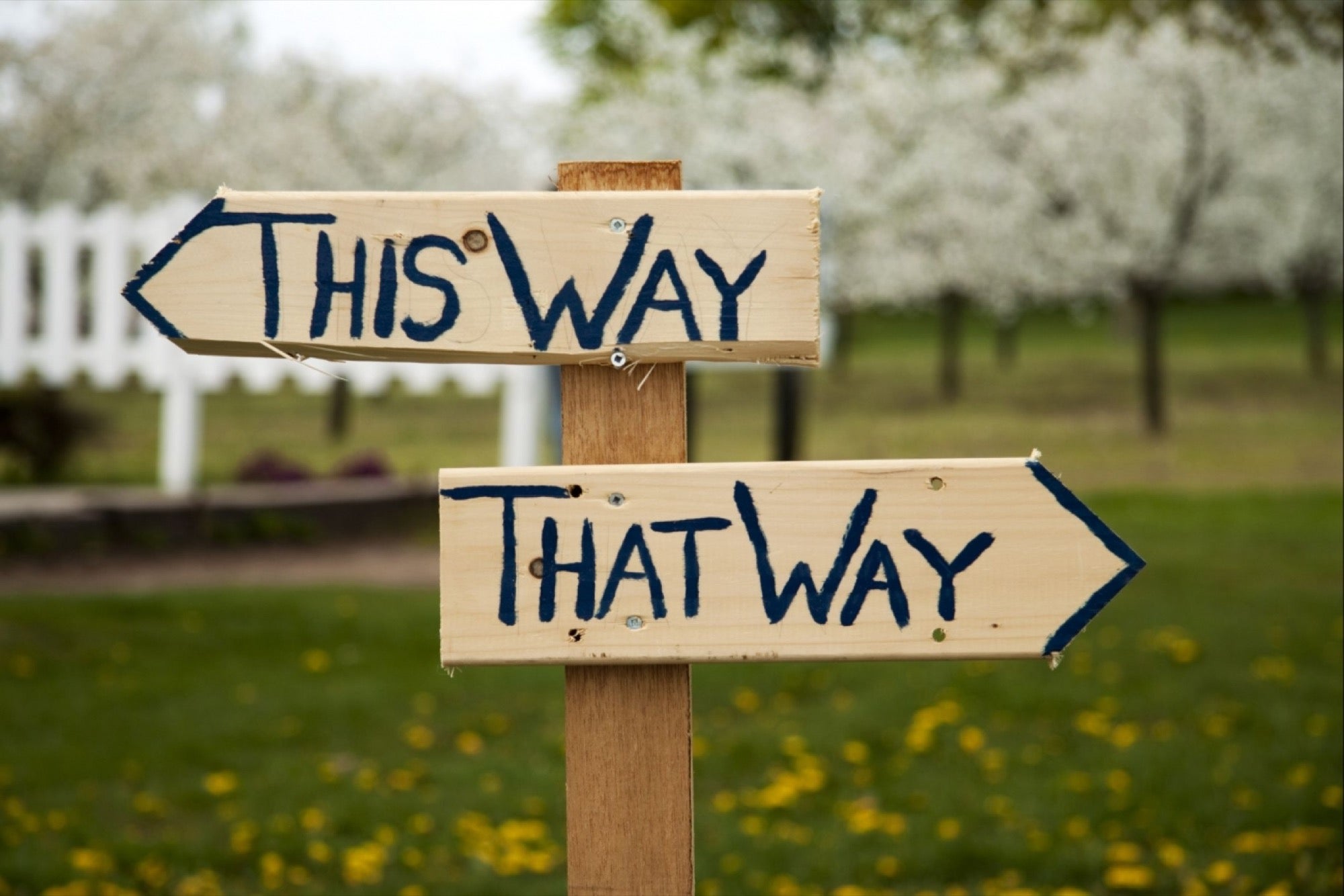Have you ever sat down and thought about how you make decisions when you don’t have a decision to make? I certainly hadn’t and if it wasn’t for a topic request from a listener to my podcast, The Slowdown (which I co-present) I wouldn’t have taken time to truly analyse my decision-making process. It is has made me look at my thought process and how I have eventually made a decision.
What I realised was that most of the important decisions I have ever made have not come from my head but from my body…the heart and gut. The confusion has always been from my mind. It struck me how much of our mental energy we use to overthink, over analyse, and overcomplicate things when making important decisions. It is no wonder we find the whole thing so incredibly exhausting, stressful and sleep-depriving when we overwhelm ourselves with all the extra thoughts that come with decision making.
Too many choices squeeze out the heart from having a say
With our mind so overloaded our decisions can make less and less sense. It makes sense, right? I recall a time when I was made redundant and had an idea of what I wanted to do next. That was, until I acquired a career coach (part of my redundancy package) and was encouraged to think of other options and other choices. I was given a 50-page list of questions for an in-depth self-analysis. It made me question the choices I had made in my life and question if I was on the right path. All that and I was only on page 20. For me, it presented my mind with too many choices to think about and squeezed out the heart from having its say.
According to the philosopher, Ruth Chang we go about decision-making all wrong; “What makes a choice hard is how the alternatives relate – one alternative is better in some ways, the other alternative is better in other ways and neither is better than the other overall. Our response to hard choices is a rational response which is not dictated by reasons given to us but supported by reasons created by us.” She has a TED Talk on ‘How to make hard choices’ in which she explains that “We should not hit our head against a wall trying to figure out which alternative is better because there is no best alternative. Instead of looking for reasons out there, we should be looking for reasons inside ourselves.”
Giving the mind less to chat about
That only comes from relaxing, something we tend not to do when we are in decision-making mode. But it is why taking a walk in nature or being by the sea often sweeps away all the question marks and brings in more answers because we have stilled the mind. This is when our natural instincts and intuition have a chance to flourish because the mind is not shutting them down. The mind has less to chat about when you take your physical and mental self out for a relaxing walk. Just think how much negative energy accumulates in your living space from all the stress racked up in decision-making. It is often why a lot of writers incorporate daily walks to clear the head. It’s like suddenly you can breathe again and feel the weight of all those extra thoughts lift.
For me, meditating on a decision has always been my way to let answers come to me rather than finding them. I have a ‘yes and no’ meditation (where you imagine the word yes in one hand and the word no in the other hand. You then explore how each word feels – light versus heavy, and the words and images it conjures up). Then there is the pathway meditation which is, perhaps, an easier one to do if you are new to meditation. It’s a visualisation in which you imagine several paths which represent the potential possibilities in your decision (you can find a full version of this meditation on The SlowDown podcast – ‘Making stress-free decisions’).
Fate might be a better option
But sometimes when you agonise over decisions too much then it’s wise to let fate step in. The flip of a coin is a good one or flipism as it is often called. Flipping a coin makes the consequences of a decision more real, and usually by the time the coin is in the air you have already made up your mind which side of the coin you want it to land on. Or you just flip open a book at a random page (I like The Secret by Rhonda Byrne – based on the law of attraction) but you can choose any book, the bible, Harry Potter…whatever you have to hand and see which word or sentence resonates with the decision you need to make.
It helps to surrender
Or you can take the advice of Patrick J. McGinnis, author of Fear of Missing Out: Practical Decision-Making in a World of Overwhelming Choice. He recommends using a watch or wall clock and assigning each one of your choices to one half of the clock face. Then just go about your day until you decide to look at the clock and notice which side the second hand is at that moment. Decision made.
I guess when it comes to decision-making, we need to surrender a bit more and not constrict ourselves with predictions or possible future outcomes of each decision, especially as we do not have the answers. So perhaps we should look at decisions another way, right or wrong, every single one of them provides life experience and valuable lessons. Maybe worth telling the mind that, the next time it starts medalling in your decisions.


